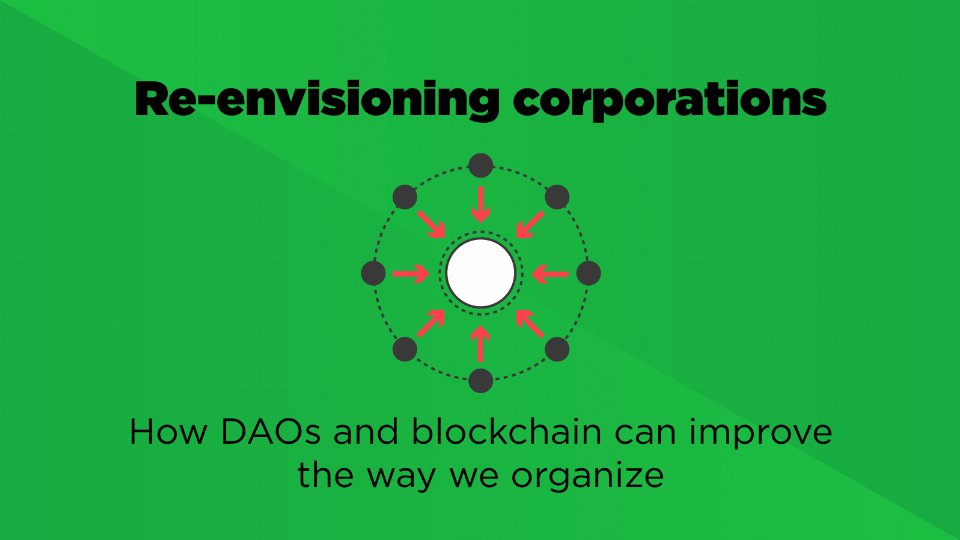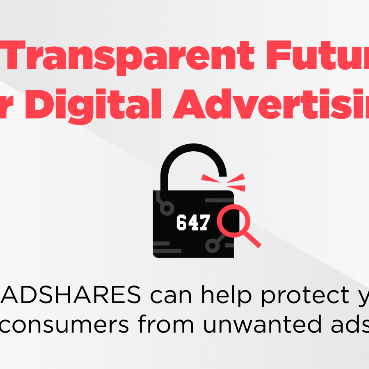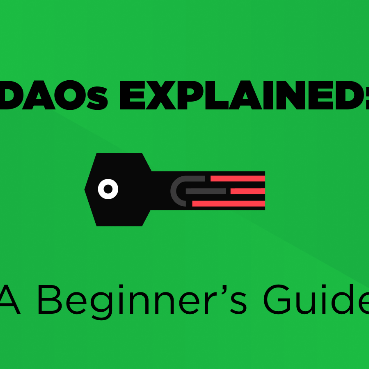Introduction: the problem with “corporations”
Traditional corporations have long been subject to scrutiny and criticism, both in popular culture and societal perceptions.
Films like "Succession," "The Social Network," and "Wall Street" vividly portray the challenges faced by corporations and business people. These movies offer captivating narratives that highlight the consequences of power concentration, lack of transparency, and inefficient governance within corporate settings.
They reflect not only the fictionalized dynamics of corporate families like the Roys in "Succession" but also real-life examples such as the high-stakes world of finance depicted in "Wall Street." These portrayals reflect broader social attitudes towards corporations, and mark a generational shift in attitude towards the Evil Inc.
And we didn’t yet mention the corruption, and destruction of democracy and society that came with “web 2.0 tech corporations”.
Society has a problem. Corporations are the scapegoat, blamed for everything – from poverty to climate change. Corporations are loathed, and hated… but their products are still being bought. Many Gen Z’s don’t even consider applying for a job at a “corp”.
Critics, contrarians and visionaries all call for reimagining organizational structures and governance models to promote transparency, accountability, and responsible business practices – both towards the employee, the customer, and the environment. Arguably, this is the very foundation of creating blockchain itself: create a more human-friendly and people-owned set of services.
In contrast with the “Roys”: what is a DAO?
To explain it simply, even if a bit reductionist, let’s take the “Succession” metaphor again.
Waystar Royco is an extremely centralized organization, where the ultimate decision maker is the CEO, where nothing happens without his knowledge, presence, or decision. Where the biggest innovations or deals can be killed on the spur of the moment. Where manipulations, and cover-ups create an impenetrable shield. And where a long chain of command makes the company almost untouchable – because it’s completely unaccountable.
In stark contrast lay the DAO: a decentralized organization – which may function without a CEO, board of directors, or managers.
An organization, where everyone, on any level or in any relationship with the company, is free to come up with any idea, form a team, create a proposal and submit it to all members for discussion, improvement, voting, and approval.
At the same time – where every decision is trackable, transparent, and accessible to anyone, forever.
Where contracts, employment, remuneration, or termination are defined on a ground of merit, and enforced automatically by smart contracts.
Companies, that ultimately can run themselves.
Why “run themselves?” Because the rules and smart contracts that govern these organizations are logical, conditional statements, which are coded directly into blockchain, making them auditable and permanent. Here is a dummy example, imitating the general syntax:
IF “government inflation data” shows an n% increase by the end of the fiscal year
THEN “employee salary” is increased by n%, starting from the first month of the next fiscal year
EXECUTE
No need for worker unions, no need for strikes or negotiations. Everything just happens.
And as the members of the DAO come up with more and more smart governance rules, which are then accepted by all member – they may become automated.
And ultimately – a company may to a great extent – run itself.
How is DAO possible?
DAOs leverage blockchain technology for decentralized decision-making, transparency, and accountability
Decentralized Autonomous Organizations (DAOs) have emerged as innovative models for organizing and decision-making, empowered by the underlying technology of blockchain. Through the utilization of blockchain's inherent features, DAOs offer a paradigm shift in how decisions are made within organizations, promoting decentralization, transparency, and accountability.
Decentralized Decision-Making: Traditional corporations often rely on hierarchical structures where decisions are concentrated at the top. In contrast, DAOs distribute decision-making authority among participants, allowing for a more inclusive and democratic process. Smart contracts, self-executing code stored on the blockchain, automate decision-making based on predefined rules and voting mechanisms. This distributed decision-making empowers individuals within the DAO, fostering a sense of ownership and collective governance.
Transparency: Blockchain's transparency is a fundamental aspect of DAOs. The decentralized nature of blockchain ensures that all transactions and decisions recorded on the blockchain are visible to participants. This transparency promotes openness and accountability within the organization, as participants can audit and verify the actions of others. The immutability of blockchain ensures that once information is recorded, it cannot be easily altered, enhancing trust among participants and reducing the potential for fraud or manipulation.
Accountability: DAOs enhance accountability by leveraging blockchain's transparent and immutable nature. Through smart contracts, DAOs establish predefined rules and conditions for decision-making and resource allocation. These rules are executed automatically and transparently, leaving an auditable trail of actions. This level of accountability holds participants within the DAO accountable for their contributions, ensuring that decisions and resources are allocated in accordance with the established rules. Furthermore, the use of blockchain can provide verifiable records of voting outcomes, reducing the risk of tampering or manipulation.
Incentivization Mechanisms: DAOs often incorporate token economies and incentive mechanisms to align the interests of participants with the success of the organization. Tokens within a DAO can represent ownership, voting rights, or other forms of value. Participants are rewarded with tokens for their contributions, whether through active participation, providing resources, or achieving specific milestones. This incentivization structure encourages active engagement and promotes the collective growth and success of the DAO. Moreover, the transparency and traceability of blockchain technology enable fair and auditable token distributions, preventing the concentration of power or unfair advantages.
By leveraging blockchain technology, DAOs revolutionize the way organizations make decisions, fostering decentralization, transparency, and accountability. The combination of decentralized decision-making, transparency through the immutability of blockchain, accountability through predefined rules, and incentivization mechanisms creates a dynamic and participatory organizational model. As the technology continues to evolve, DAOs hold the potential to reshape traditional corporate structures and drive a more inclusive and collaborative future of organization and governance.
There are already examples of successful DAOs
Uniswap DEX
Uniswap is one of the most popular cryptocurrency exchanges built on the Ethereum blockchain. Anyone can become a member by purchasing and holding the UNI token, which gives voting rights to the way the organization is run and administered.
Decentraland
Decentraland is an example of a fully community-governed Metaverse world. Anyone can become a member of the Decentraland DAO by obtaining a Decentraland land, or MANA tokens. It is also an example of multi-tiered DAO, with the Decentraland Foundation working as a core team, and several team structures that help ensure transparency and accountability (like the Grant Revocation Committee). Otherwise, most of the governance, technical, collaboration, content, and administrative decisions are taken based on users Improvement Proposals. These are shared with the DAO community to discuss, collaboratively edit, and vote upon. Winning proposals are implemented.
ConstitutionDAO – the most talked about example of a grassroots people’s organization
This DAO was set up in 2021 as a decentralized effort to win a rare edition of the US constitution, put up for auction by the Sotheby’s auction house. The DAO crowdfunded its part into the auction, aiming to secure the physical document and make it available to all members.
Despite raising over $40 million from 15,000 contributors, it was not successful. However, even though they did not win the auction, the project was a success in that it had educated many people on the potential of DAOs as a vehicle for raising crowdsourced funds. It also showed how transparent and decentralized systems of fundraising may ensure the security of funds. Constitution DAO returned all funds to the community.
Ad network as a DAO
Most ad networks are primarily centralized and owned by corporations. In the traditional advertising ecosystem, a few dominant companies control significant portions of the market and operate as intermediaries between advertisers and publishers. These centralized ad networks act as middlemen, connecting advertisers looking to display their ads with publishers who have advertising space on their platforms.
These centralized ad networks typically have proprietary platforms and algorithms that manage the buying and selling of ad inventory. They collect and process large amounts of user data to target ads and measure their effectiveness. Examples of such centralized ad networks include Google Ads (formerly Google AdWords) and Facebook Ads.
The centralized nature of these ad networks allows the controlling entities to set the rules, determine the pricing, and have significant control over the advertising ecosystem. They act as gatekeepers, influencing the allocation of ad budgets, setting ad standards, and regulating access to inventory.
Centralized ad networks like Google, with their intricate algorithms and vast data repositories, play a significant role in shaping our digital experiences. They carefully curate and target advertisements based on our online behaviors, sometimes making us wonder if they possess mind-reading abilities. These networks also exercise control over the content displayed, making decisions on what gets promoted and what remains hidden. With their dominant market position, they have a considerable influence on the flow of information. Additionally, the profitability of these networks relies on extracting value from user interactions, as each click and engagement contributes to their advertising revenue. While they provide a valuable service to advertisers and content creators, the centralized nature of these networks has led to discussions about issues such as data privacy, censorship, and fair distribution of value.
ADSHARES is an example of a decentralized ad network which aims to empower participants, foster transparency, enhance trust, and create a more efficient and fair advertising ecosystem. ADS token holders can join the network as Advertisers or Publishers.
On the basic level, by recording transactions and data on the blockchain, participants can verify the integrity of the network's operations and ensure fair and transparent ad placement, targeting, and revenue sharing.
With the underlying Token Economy, ADSHARES incentivizes participation and aligns the interests of its participants. ADS can be used as a medium of exchange for ad purchases, rewards for providing ad space or valuable data, and as a governance mechanism for voting on network decisions.
ADSHARES core team already created a Decentralized Ad Exchange – a peer-to-peer ad exchange, eliminating the need for intermediaries. Advertisers and publishers can directly interact and transact with each other, using the network's native tokens as the medium of exchange. This enables more efficient and direct ad buying and selling processes while reducing costs and increasing revenue for both advertisers and publishers.
Additionally, a Governance framework has been implemented, where decisions regarding network rules, policies, and improvements are made collectively by its participants. This will be achieved through voting mechanisms implemented on the blockchain. Each participant, such as advertisers, publishers, and token holders, may have voting rights proportional to their stake or participation in the network.
Any ADS holder may put forward an improvement proposal, aiming to improve the network’s functionality, application, scaling, or other policies.
Examples of such proposals include:
-
Creating a “Wear to Earn system” – where the ADS blockchain protocol would be used to reward users for wearing branded NFT wearables. A huge tool for many wearable creators as well as avatar providers.
-
Creating an “Unreal Engine5 integration of the ADS protocol” – as the core team already created in implementation for the Unity engine, successfully tested by Decentraland and Polka City – the Community proposed to integrate the protocol with the Unreal Engine specifications and requirements.
-
Creating an “Adshares Cross-Platform Ad Performance Analytics” – develop and integrate a cross-platform ad performance analytics tool within the Adshares ecosystem, enabling users and businesses to measure the effectiveness of their advertising campaigns across multiple platforms, and optimize their ad strategies accordingly.
All of the above are real examples, taken from our forum and Discord #dao channels.
But it’s not hard to imagine regular users, “consumers” if you will, coming up with various improvement or governance proposals.
And create a more transparent, trustworthy, user-friendly and rewarding advertising ecosystem, globally.


